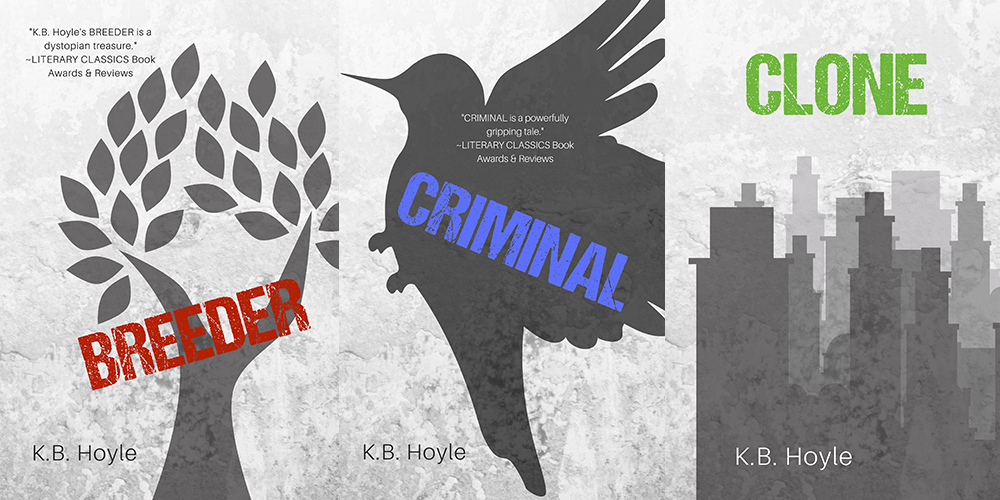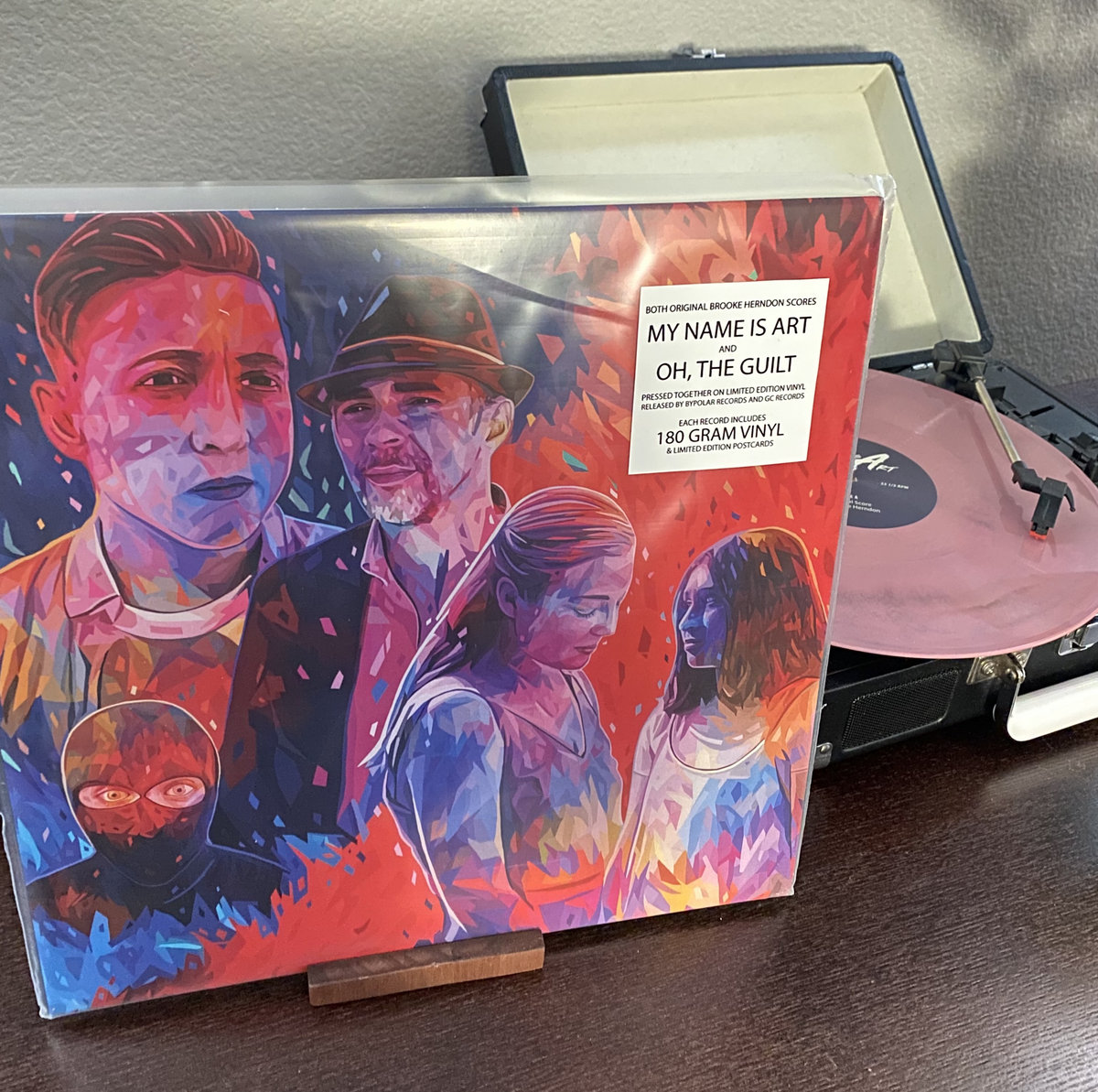When you read something important, there comes a certain feeling—a tightening of the gut, a slight slack in the jaw, an inability to blink. It overtook me when I read A Tale of Two Cities, The Moon is Down, Animal Farm, Handmaid’s Tale, and The Hunger Games. This feeling encompasses the certainty of truth—a powerful, unencumbered, unflinching honesty about the human experience—in such a beautiful narrative that you are forced to examine issues you might otherwise gloss over or avoid. This feeling returned to me when I first read Breeder.
The Breeder Cycle is an unapologetically human story told in the midst of a dystopian world that is unceasing in its attempt to eliminate humanity itself. Perhaps based on that line alone, it should be easy to tell who the villain is—after all, what sort of organization would wish to wipe out humanity and all that makes it special? Yet author K.B. Hoyle tackles her Unified World Order (the overarching world government) with a subtle, expert hand, using rhetoric and ideas found in several popular philosophies spread today that ultimately makes it a wolf in sheep’s clothing.
In her UWO, exceptionalism, uniqueness, genetic variation, and disability of any kind are untolerated “for the good of the whole.” Anything that separates the individual from the whole is not only discouraged, but intricately tracked, targeted, and most often terminated. Individuals outside of those designated as Breeders are sterilized to control the population and ensure only the strongest survive and reproduce. Everyone is equal, plays their role, lives, breathes, and dies for the good of the UWO. It is a narrative that on the outset doesn’t sound so bad—a world where everyone knows exactly what their role is, doesn’t go hungry, doesn’t overpopulate the world. But it is a world that requires total, and absolute control by a higher power—and as we all know well, absolute power corrupts absolutely.
In the face of such a complex, quasi-benevolent enemy, Hoyle’s choice of a young, fully-indoctrinated, female citizen as her protagonist becomes a stroke of genius. As a Breeder, Seventeen (later known as Pria) is set apart from the rest of the world, living her formative years surrounded by women, her lifestyle and daily activities strictly regulated, her head shaved to remove the possibility of jealousy, and her body impregnated all for the good of the UWO. As a protagonist, Pria first clings to this way of life and version of truth even in the face of so much evidence that is fast thrown her way throughout Breeder and the second book, Criminal. When she eventually recognizes it for what it was and abandons that world, the lifetime of indoctrination and ideals still linger all the way through the third book, Clone, making her struggle and growth incredibly realistic and all the more powerful. For even in her struggle, she proves herself relentlessly flawed and human.
Relationships are strictly forbidden in the UWO, given that those attachments may grow more powerful than an individual’s bond to the government. So when Pria develops an attraction and subsequent attachment to her rescuer, Pax, it becomes one of the major turning points in both of their character arcs and loyalty. In turn, her friendships with those in the rebel ranks take a proud stance in the face of an emotionless government whole and in the shaping of Pria as a full-fledged person, not a cog of the UWO machine. With these experiences and newfound understandings of people’s motivations, behaviors, and individuality, Pria finds true freedom and carries it with her to the very end.
And what is humanity in the aftermath of such great, worldwide devastation? Hoyle examines two worlds in order to answer this question—that controlled by the UWO, and those who escaped in the formation of the government and subsequent years. Her main focus rests on Asylum, a large group of rebels who’ve survived and built their own small governing system and home. Here is where Pria encounters the “old” ways of life full of institutions foreign and archaic to her—marriage, natural born children, individuality, choice. Yet as the series expands, so do these Nests (rebel groups) and we see that even in rebellion, individuals will form different ecosystems so that some focus on peace and retreat, others on impending war, and still others on less-than-clear motives.
Thus, in her world-building, on scales both vast and intimate, Hoyle focuses on and celebrates the diversity found in humanity. Pria, as the storytelling vessel, gets to experience this firsthand and adjust her worldview over time with each new wave of evidence until finally, she falls in love not only with Pax, but with freedom and this authentic version of humanity enough to risk her own life and happiness for the sake of the rest. It is a slow process, and a difficult one, yet entirely believable so that as we read, we assimilate with Pria until it becomes our story as well.
If you’ve longed for a dystopian series that is complex, romantic, challenging, thrilling, and ultimately satisfying, the Breeder Cycle is a must-read. It’s the perfect story for young women and men starting their journeys in this mad, complex world—be they in high school, college, or much older. It is a story that will sit a while in your mind, reveal new truths, and ask questions over time, and that you will wish to revisit now and again to engage your mind and spirit at once.



